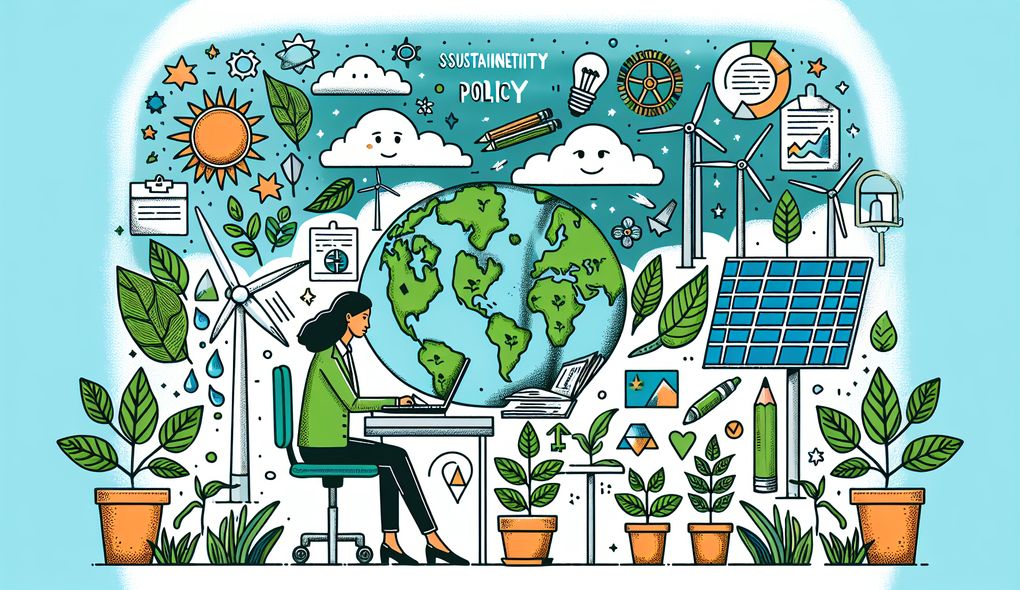What role does leadership play in driving sustainable practices in an organization?
SENIOR LEVEL

Sample answer to the question:
Leadership plays a crucial role in driving sustainable practices in an organization. A strong leader sets the vision and direction for sustainability initiatives, ensuring they are aligned with the company's overall goals. They inspire and motivate employees to embrace sustainability practices and create a culture that values environmental responsibility. A leader also leads by example, implementing sustainable practices in their own work and encouraging others to do the same. They collaborate with stakeholders across various sectors to develop and implement sustainability strategies, and they advocate for environmental policies at local, national, and international levels. Overall, leadership drives the integration of sustainable practices into all aspects of the organization's operations.
Here is a more solid answer:
Leadership plays a pivotal role in driving sustainable practices in an organization. A strong leader sets a clear vision and establishes sustainability goals that align with the company's overall objectives. They demonstrate in-depth knowledge of sustainability practices and regulatory landscapes, staying up-to-date with the latest trends and standards. By effectively communicating the importance of sustainability to employees, a leader creates a culture of environmental responsibility. They lead by example, implementing sustainable practices in their own work and encouraging others to do the same. A leader also collaborates with stakeholders across sectors to develop comprehensive sustainability strategies, taking into account their diverse perspectives and interests. They engage and influence these stakeholders, building relationships and mobilizing support for sustainability initiatives. Additionally, a leader advocates for environmental policies at different levels, participating in discussions and representing the organization's sustainability goals. Ultimately, leadership ensures that sustainable practices are integrated into every aspect of the organization's operations, leading to long-term success.
Why is this a more solid answer?
The solid answer provides more specific examples and demonstrates a deeper understanding of the role leadership plays in driving sustainable practices. It highlights the candidate's knowledge of sustainability practices and regulatory landscapes, as well as their ability to engage and influence stakeholders. However, it could be further improved by providing more specific examples of how the candidate has demonstrated leadership in driving sustainable practices in their previous roles.
An example of a exceptional answer:
Leadership plays a critical role in driving sustainable practices in an organization. A visionary leader sets the tone for sustainability by developing a clear roadmap and goals, inspiring employees to embrace sustainability as an integral part of their work. They possess exceptional research and analytical capabilities, enabling them to stay ahead of industry trends and regulatory developments. A leader fosters a culture of environmental responsibility by implementing sustainable practices in their own work and encouraging others to do the same. They actively engage and collaborate with internal departments, ensuring that sustainability is integrated into all aspects of the organization's operations, from procurement to supply chain management. Moreover, a leader excels in stakeholder engagement, building strong relationships with diverse stakeholders and mobilizing support for sustainability initiatives. They advocate for environmental policies at local, national, and international levels, leveraging their deep understanding of sustainability practices and regulatory landscapes. By monitoring and reporting on the effectiveness of sustainability programs, a leader guides the organization in continuously improving its environmental performance. They also guide the company in achieving sustainability certifications and awards, further reinforcing their commitment to sustainable practices. Overall, leadership is the driving force behind an organization's journey towards sustainability.
Why is this an exceptional answer?
The exceptional answer showcases the candidate's exceptional research and analytical capabilities, as well as their ability to foster a culture of environmental responsibility and engage stakeholders effectively. It emphasizes the candidate's knowledge of sustainability practices and regulatory landscapes, as well as their ability to advocate for environmental policies at different levels. The answer also highlights the candidate's role in monitoring and reporting on sustainability programs and guiding the organization in achieving sustainability certifications and awards. It addresses all the evaluation areas thoroughly and provides specific examples. However, it could be further improved by incorporating more specific details about the candidate's past experiences and achievements in driving sustainable practices.
How to prepare for this question:
- Familiarize yourself with current sustainability practices and trends.
- Stay updated with regulatory frameworks and reporting standards like GRI and SASB.
- Develop your leadership and project management skills.
- Highlight any past experiences in developing and implementing sustainability strategies.
- Prepare examples of how you have successfully engaged stakeholders in the past.
- Demonstrate your ability to advocate for environmental policies.
- Highlight your track record in monitoring and reporting on sustainability programs.
- Discuss any experience in achieving sustainability certifications and awards.
What are interviewers evaluating with this question?
- Leadership
- Sustainability Knowledge
- Stakeholder Engagement

